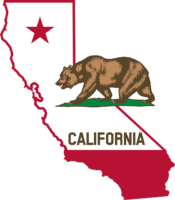California Presses Uber and Lyft Over Drivers' Status; BigCommerce Sets Sights on $1b IPO
by Grace Dillon on 25th Jun 2020 in News


The FGB Digest brings you the latest news on the world’s fastest growing direct-to-consumer and challenger brands. In today’s edition: Uber and Lyft face pressure from Californian authorities to give their drivers employee status; BigCommerce is reportedly working with Morgan Stanley on an IPO; and Starling Bank adds three new partners to its Marketplace.
California pushes for Uber and Lyft drivers to be classed as employees
A press release issued by the Attorney General of California has demanded that ride-sharing companies Lyft and Uber give their drivers employee status. The statement, released yesterday (24th June) by the office of Xavier Becerra, orders the firms to cease their “unlawful misclassification” of those who provide their taxi services, which has seen drivers be denied a plethora of employee privileges, including paid sick leave and insurance.
The decision, backed by the City Attorneys of Los Angeles, San Diego, and San Francisco, was made in part to reduce the reliance on tax-payer-funded government support schemes in place of proper employment benefits. Citing a study undertaken by the University of California, Berkeley, the Becerra’s office stated that Uber and Lyft have dodged paying a combined USD $413m (£332.5m) into the state’s Unemployment Trust Fund by denying their drivers full employee status.
The state government is now gearing up to file a motion against the two companies before the Superior Court of San Francisco. The Californian Attorneys emphasised their commitment to cracking down on Uber and Lyft’s dubious treatment of their drivers. “The exploitation has got to stop. We’re taking aggressive action to ensure these drivers receive the basic protections owed to all employees,” said Mike Feuer, City Attorney General for Los Angeles.
BigCommerce sets sights on IPO

E-commerce software firm BigCommerce is reportedly looking to go public with a valuation of USD $1b (£805.2m). According to sources close to the matter, the company, which designs the software behind online storefronts, is working with investment banking firm Morgan Stanley to launch an IPO on the US Stock Exchange. The Texas-based firm has privately filed for the listing, although the financial details of the deal may become publicly known soon.
To date, BigCommerce has raised more than USD $200m (£161m) in funding, including $64m (£51.5m) from General Catalyst, Goldman Sachs Group Inc., and GGV Capital in a 2018 funding round. The company has also racked up more than $25b (£20.1b) in merchant sales on its platform.
The past few months have seen wide-scale success for e-commerce platforms, as COVID-induced lockdowns have seen brick-and-mortar retailers shut their doors. BigCommerce has been amongst some of the lucky few to benefit from the disruption to ordinary life, along with rivals Shopify and Salesforce-owned Demandware Inc. Judging by the track records of recent US IPOs by software companies, which have doubled in value on average, the move could prove a lucrative one for BigCommerce.
Starling Bank announces three new Marketplace partners
 Digital bank Starling has launched three new product integrations in its app. Workplace messaging platform Slack, health insurance firm Equipsme, and energy provider switching service Bionic, have all been incorporated into the bank’s canon of complementary services for businesses provided through Starling Marketplace.
Digital bank Starling has launched three new product integrations in its app. Workplace messaging platform Slack, health insurance firm Equipsme, and energy provider switching service Bionic, have all been incorporated into the bank’s canon of complementary services for businesses provided through Starling Marketplace.
These latest additions create a total of 26 services available via bring Marketplace. They will enable the 177,000 small-to-medium businesses that use the challenger bank to arrange energy contracts, offer medical support to employees, and view real-time transaction alerts via the Starling app. The companies are the first within the communications, healthcare, and energy sectors to become integrated into the Marketplace offering.
Speaking about the new unions, Starling founder and CEO Anne Boden said “These new Marketplace integrations are bringing added value to our business customers, helping them to save money on utilities, incentivise their staff with health insurance and sync their Starling app with Slack so their teams can enjoy real-time spending notifications wherever they’re working.”




Follow Fast Growth Brands